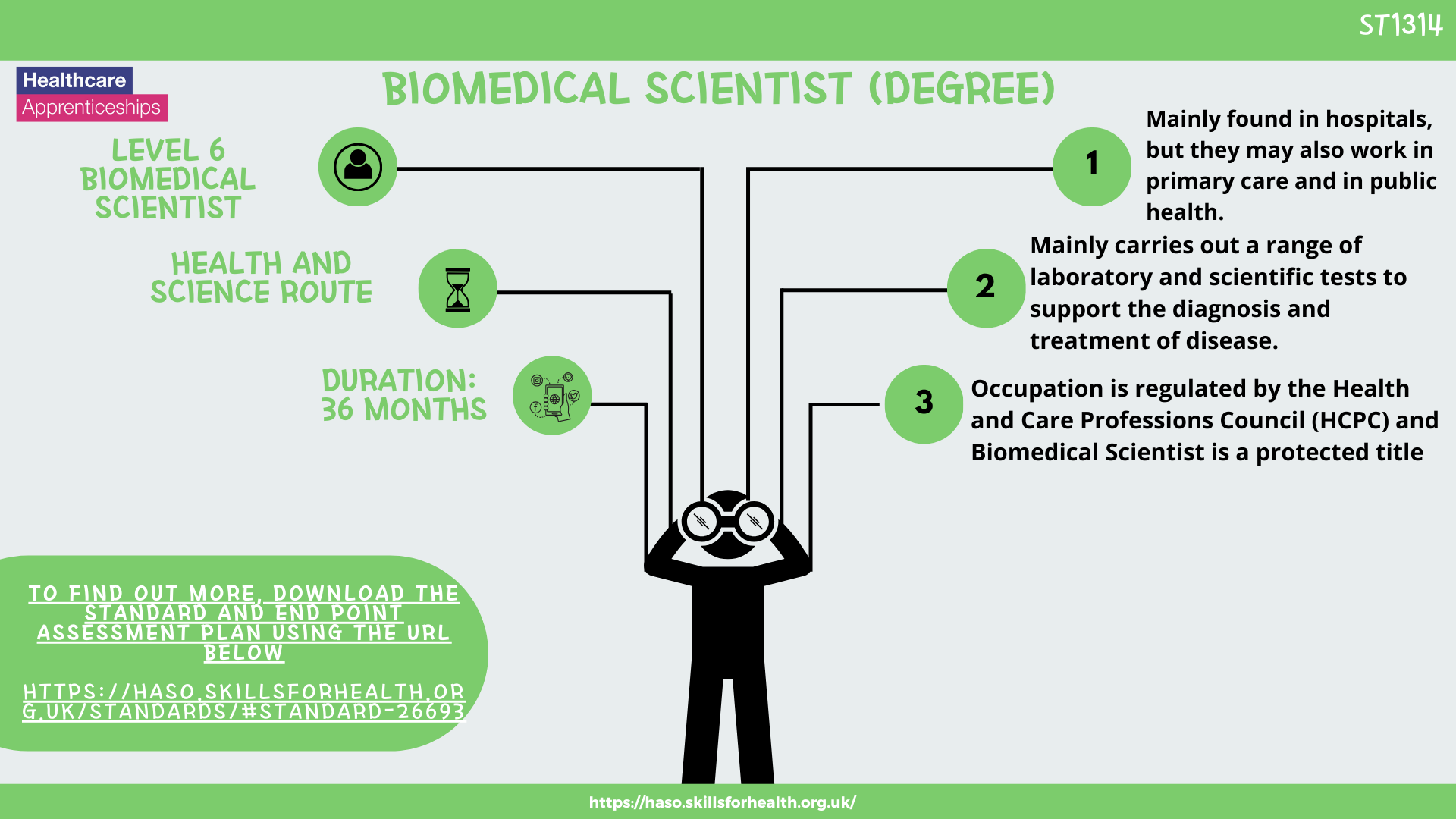 This week’s Standard of the Week is the Level 6 Biomedical Scientist (Degree) apprenticeship standard which has been approved for delivery since 16th August 2023.
This week’s Standard of the Week is the Level 6 Biomedical Scientist (Degree) apprenticeship standard which has been approved for delivery since 16th August 2023.
The broad purpose of the occupation is to carry out a range of laboratory and scientific tests to support the diagnosis and treatment of disease. Biomedical scientists investigate a range of medical conditions, including for example cancer, diabetes, blood disorders (eg anaemia), meningitis and hepatitis. Biomedical scientists perform a key role in screening for hereditary and acquired diseases, identifying those caused by bacteria and viruses and monitoring the effects of medication and other treatments.
Biomedical scientists must be able to work with computers, sophisticated automated equipment, microscopes and other hi-tech laboratory equipment and to use a wide range of complex modern techniques in their day-to-day work. Biomedical scientists usually specialise in one of three broad discipline areas. These are infection sciences, blood sciences or cellular sciences.
In their daily work, an employee in this occupation interacts with
- Patients, service users and carers
- Other healthcare scientists and other members of the healthcare science team, for example laboratory assistants
- Healthcare professionals, for example allied health professionals, doctors, nurses and healthcare support workers
- Administration, management and other non-clinical staff, such as porters, cleaners and receptionists
There are currently 9 registered training providers for this Level 6 Biomedical Scientist (Degree) apprenticeship standard.
You access information about applying to the APAR as an apprenticeship training provider.
You can access the Level 6 Biomedical Scientist (Degree) apprenticeship standard here.


